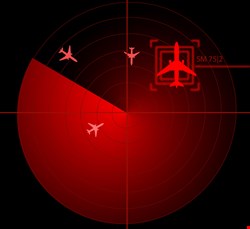
The goal of the cyberattacks would have been to penetrate the firewalls of the Qaddafi government’s computer networks in order to cut communication links and prevent the early-warning radars from relaying data to missile batteries, according to a report by the New York Times.
However, the Obama administration decided against the move, fearing it would set a bad example for countries, such as Russia and China, that might be emboldened to carry out their own cyberattacks.
“We don’t want to be the ones who break the glass on this new kind of warfare,” James Andrew Lewis, a senior fellow at the Center for Strategic and International Studies, told the newspaper.
Ultimately, the administration decided to blow up the air-defense systems in Libya using conventional aircraft, cruise missiles, and drones.
The newspaper said it interviewed more than a half-dozen officials, who spoke on the condition of anonymity because they were not authorized to discuss the classified planning, for the story.
These officials said that the administration also considered using cyberwarfare against Pakistan’s radars prior to the raid that killed Osama bin Laden in May.
Commenting about the report, Chet Wisniewski, senior security advisor at Sophos, wrote in a blog: “This is likely not the last time we will learn of the use of hacking and malware, or their consideration, during times of war. The question to be asked is, would these cyber weapons end up in the hands of our enemies?”